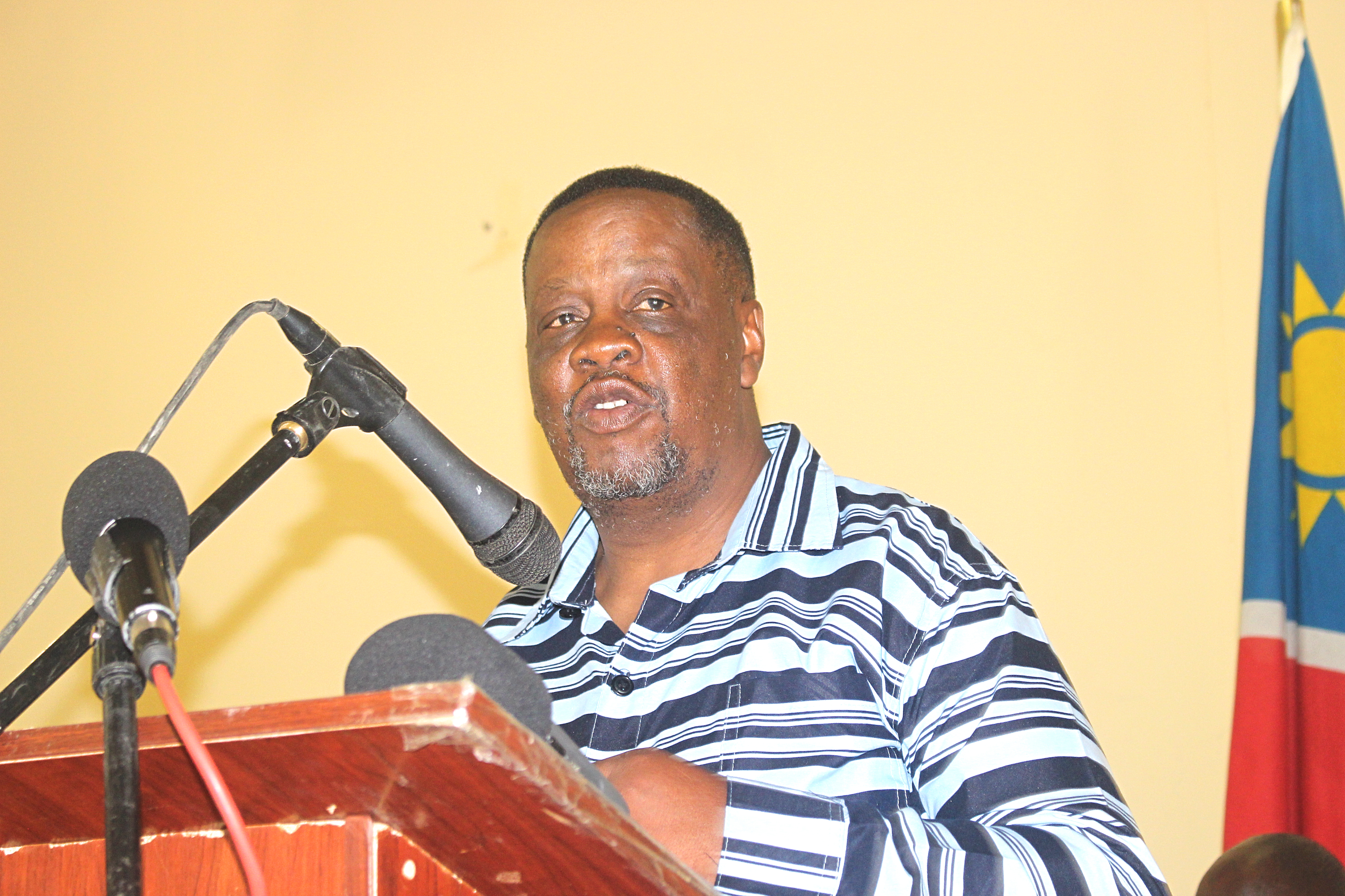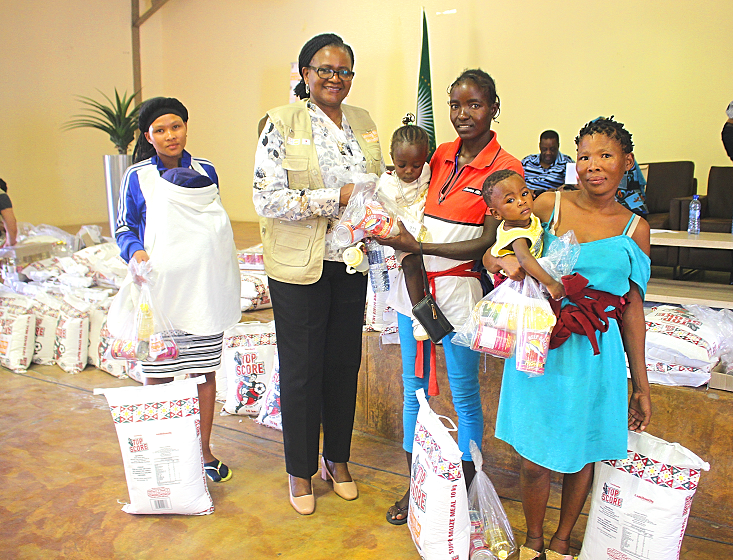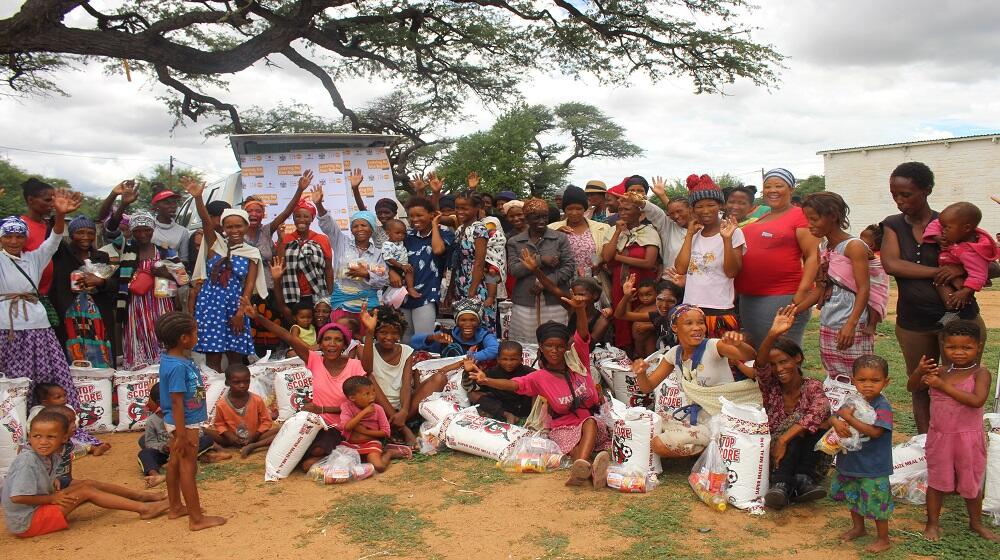
GOBABIS, Namibia
To ensure that underprivileged households in Omaheke region have access to basic necessities, the United Nations Population Fund (UNFPA) Namibia Country Office, the Office of the Omaheke Governor, and the Omaheke Regional Council donated food packs on 30 January 2023, through the Leaving No One Behind Project, funded by the Government of Japan. About 660 food packs were distributed to vulnerable women and girls in Gobabis, Aminus, Otjombinde, Epukiro, Otjinene and Okorukambe constituencies. Each food pack contained 10 kg of maize meal, 750 ml of cooking oil, and two fish cans. In addition to the food packs, hygiene products—in total, 336 packs of sanitary pads and 1 445 toothbrushes—were donated to learners at Dr. Fischer Primary School.

The Japan-funded Leaving No One Behind Project is implemented in eight regions of the country and serves to contribute to the combating of gender-based violence and as an emergency response intervention in the context of COVID-19. The project focuses on those farthest left behind, including vulnerable women and girls, particularly those living with disabilities, pregnant and lactating women, in- and out-of-school youth, and other groups susceptible to sexual and gender-based violence.

Ms. Gift Malunga the UNFPA Namibia Representative ad interim, said the COVID-19 pandemic has had a disproportionate impact on the health, rights, safety, and well-being of women and adolescent girls, unraveling hard-won gains made over the past decade and exacerbating persistent inequalities and violations of human rights.
"Globally, in developing countries, 20 000 girls under the age of 18 give birth every day, accounting for 7.3 million births a year. Namibia is no exception, with an adolescent birth rate of 82 births per 1 000 girls aged 15–19 years, which is nearly double the global prevalence of 44%. The levels of physical violence are also high, as it is reported that 33% of adolescent girls and women (aged 15-24) have experienced violence in Namibia,” she stated. She added: “Today we are reminded again to give our support to vulnerable adolescents, youth, women, boys, and men from different walks of life.”
Our circumstances should be a learning lesson, a learning curve, to propel us to the next level.
Hon. Pijoo Nganate, the Governor of the Omaheke region, commended UNFPA, the people of Japan and the inhabitants of Omaheke who are supporting vulnerable populations . ”Our circumstances should be a learning lesson, a learning curve, to propel us to the next level,” he encouraged beneficiaries.
Reiterating the Governor’s statement, Hon. Ignatius Kariseb, the Chairperson of the Omaheke Regional Council, said that the people of Omaheke cannot solely depend on donations. “We cannot at all times depend on food handouts. We must come to the realization that the time has come to get to the point where we can go to the field and plant and harvest the crops we require.”
Omaheke region has great economic potential, which still needs to be fully exploited sustainably for the benefit of the local population. The region is also known as the 'Cattle Country', and is home to the majority of commercial cattle farmers in the country.


